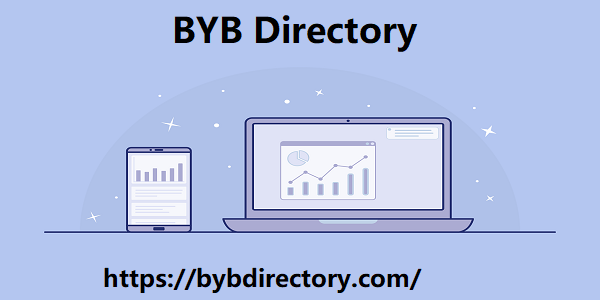Post by account_disabled on Mar 12, 2024 23:42:09 GMT -6
Companies that source Rainforest Alliance Certified tea can make certified sourcing claims about their SD and SI payments on their website and company materials. In turn, consumers can connect with these claims and support sourcing practices that reflect their values. This brand-led approach also allows other supply chain actors, such as retailers, to directly contribute to farm improvements and farmer livelihoods in the shape of payments through their manufacturers and packers. As consumers increasingly seek brands that do good for people and the environment, shared responsibility provides a mechanism for companies in certified supply chains to demonstrate their impact. Taking this into account, SD and SI payments are the responsibility of brand owners in our tea Shared Responsibility approach. The specific requirements are set out in our Annex Chapter 3: Income and Shared Responsibility. Find the timelines for SD and SI implementation in the tea sector on our Shared Responsibility Page. We will closely monitor the outcomes of this approach to inform future adaptations on shared responsibility needs in the tea sector.
Traceability Online traceability is a requirement of the Rainforest Alliance 2020 Standard to deliver greater transparency, link sustainability progress between source and market and improve visibility of risks and opportunity for sustainability improvements, claims and narratives. Farm and Supply Chain Certificate Holders (CH) conduct tea traceability on the Rainforest Alliance Certification Platform (RACP). It is also crucial to SD and SI implementation. FAQs Below, we seek to answer many of the tea-specific questions we have received on this BYB Directory topic in the past year. We aim to keep this page and Q&A updated as we evolve our approach. For general questions about our shared responsibility approach, please refer to our explainer on shared responsibility. For questions about what is required, and how to interpret those requirements, please refer to Annex Chapter 3: Income and Shared Responsibility. GENERAL QUESTIONS Why is the Shared Responsibility tea approach brand-led? I am a brand owner.

Can I pay either SD or SI i.e., choose between them How will the SD and SI payments benefit tea workers? How will the SD/SI approach benefit tea smallholders? PAYMENT OF SHARED RESPONSIBILITY COMMITMENTS I am required to commit and pay SD SI. To whom am I making the commitment on SD SI levels? As a tea brand owner or packer, what is the minimum contribution for SD/SI I must make? Why is there no fixed or minimum amount of SD and SI payments for tea? I wish to negotiate the SD SI levels, with whom do I do that? Can already existing investments from brand owners, manufacturers or packers be considered as Sustainability Investments under the Shared Responsibility approach? How can I log SI agreed in kind? Can food retailers influence the investment plans? Will contracts for SD and SI payments be required in the tea sector? What will be the mechanism to guarantee payment of the SD and SI? Can the redeemer reassign SD/SI? How will the Rainforest Alliance ensure that tax obligations on SD/SI payment are minimized, and payments reach farms in full? How should Brand Owners include SD/SI on invoices for payment to suppliers? How should Brand Owners budget for future SD/SI payments? What currency will be used to make payments to the producer? Where can I get a sample investment plan template? How can the expenditure for SD/SI be documented for an audit? Are brands required to onboard Convera as a vendor in their systems.
Traceability Online traceability is a requirement of the Rainforest Alliance 2020 Standard to deliver greater transparency, link sustainability progress between source and market and improve visibility of risks and opportunity for sustainability improvements, claims and narratives. Farm and Supply Chain Certificate Holders (CH) conduct tea traceability on the Rainforest Alliance Certification Platform (RACP). It is also crucial to SD and SI implementation. FAQs Below, we seek to answer many of the tea-specific questions we have received on this BYB Directory topic in the past year. We aim to keep this page and Q&A updated as we evolve our approach. For general questions about our shared responsibility approach, please refer to our explainer on shared responsibility. For questions about what is required, and how to interpret those requirements, please refer to Annex Chapter 3: Income and Shared Responsibility. GENERAL QUESTIONS Why is the Shared Responsibility tea approach brand-led? I am a brand owner.

Can I pay either SD or SI i.e., choose between them How will the SD and SI payments benefit tea workers? How will the SD/SI approach benefit tea smallholders? PAYMENT OF SHARED RESPONSIBILITY COMMITMENTS I am required to commit and pay SD SI. To whom am I making the commitment on SD SI levels? As a tea brand owner or packer, what is the minimum contribution for SD/SI I must make? Why is there no fixed or minimum amount of SD and SI payments for tea? I wish to negotiate the SD SI levels, with whom do I do that? Can already existing investments from brand owners, manufacturers or packers be considered as Sustainability Investments under the Shared Responsibility approach? How can I log SI agreed in kind? Can food retailers influence the investment plans? Will contracts for SD and SI payments be required in the tea sector? What will be the mechanism to guarantee payment of the SD and SI? Can the redeemer reassign SD/SI? How will the Rainforest Alliance ensure that tax obligations on SD/SI payment are minimized, and payments reach farms in full? How should Brand Owners include SD/SI on invoices for payment to suppliers? How should Brand Owners budget for future SD/SI payments? What currency will be used to make payments to the producer? Where can I get a sample investment plan template? How can the expenditure for SD/SI be documented for an audit? Are brands required to onboard Convera as a vendor in their systems.
